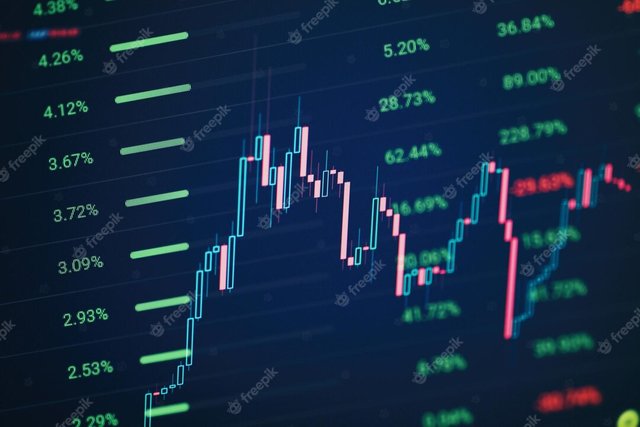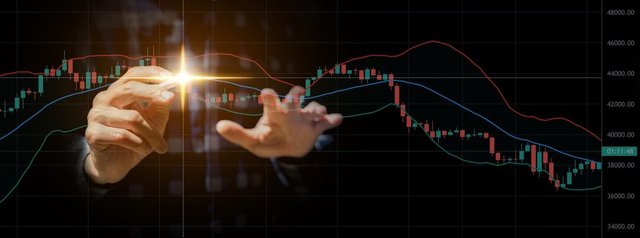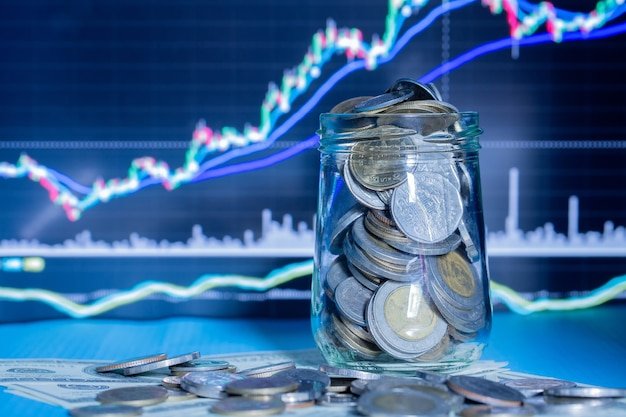What Is Fundamental Traders
What Is Fundamental Traders |
|---|
Although trading on fundamentals can be viewed from both short-term and long-term perspectives, fundamental analysis is often more closely associated with buy-and-hold investment strategies than with short-term trading.
Some trading strategies are based on split second decisions and others are based on trends or factors that appear over the course of a day, fundamentals may not change for months or years. At the short end of the spectrum, for example, the release of a firm's quarterly financial statements can provide insight into whether the firm is improving its financial health or market position. Changes (or lack of changes) can serve as signals for trading. Of course, a press release announcing bad news can change fundamentals in an instant.
Fundamental trading holds a real attraction for many investors because it is based on logic and facts. Of course, finding and interpreting these facts is a time-consuming, research effort. Another challenge comes in the form of financial markets, which do not always behave in logical ways (especially in the short term) despite data remote that they should.
Noise Trader |
|---|
Shore trading refers to an investment style in which buying and selling decisions are made without the use of fundamental data specific to the company that issued the securities being bought or sold. Noise traders typically trade short-term to take advantage of various economic trends.
Although technical analysis of statistics generated by market activity, such as past prices and volume, provides some insight into patterns that may suggest future market activity and direction, noise traders often have are malleable and overreact to good and bad news.
While this description may not sound very flattering, in reality, most people are considered noisemakers, as very few people make investment decisions using only fundamental analysis. To put this approach into perspective, let's revisit our earlier analogy about the trip to the mall. Unlike a fundamental analyst, a technical analyst sits on a bench in the mall and watches people go into the stores. Ignoring the intrinsic value of the products in the store, a technical analyst's decision will be based on the pattern or activity of people visiting each store.
Technical analysis, like other strategies that involve data analysis, can be time-consuming and require quick reactions to take advantage of perceived opportunities.
Trader Of Emotions |
|---|
Emotional traders try to identify and participate in trends. They don't try to beat the market by finding great securities. Instead, they try to identify securities that are moving with the market's momentum.
Emotional traders combine aspects of fundamental and technical analysis in an attempt to identify and participate in market movements. There are different types of emotional trading methods, including swing traders who seek to catch significant price movements while avoiding idle periods and contrarian traders who use overly positive or negative sentiment signals as indicators of a possible reversal in sentiment.
Trading costs, market volatility, and difficulty in accurately predicting market sentiment are some of the key challenges emotional traders face. Although professional traders have more experience, leverage, information, and lower commissions, their trading strategies are limited by the specific securities they are trading. For this reason, large financial institutions and professional traders may choose to trade currencies or other financial instruments instead of stocks.
Success as an emotional trader often requires early mornings to study trends and identify potential securities to buy or sell. This type of analysis can be time-consuming, and trading strategies may require immediate timing.
Market Timer |
|---|

freepik
Market timers try to predict in which direction (up or down) the security will move. They usually look to technical indicators or economic data to gauge the direction of movement.Few investors, especially academics, do not believe they it is possible to correctly predict they direction of market movement.
Most investors will find that they are not able to devote enough time to this effort to achieve a reliable level of success. For these investors, a long-term strategy is often more satisfying and profitable.
Ofcourse, day traders will argue that market timing can be a profitable strategy, such as when trading technology shares in a bull market. Investors who bought and flipped real estate during a market boom would also argue that market timing can be profitable. Just keep in mind that it's not always easy to tell when to exit the market, as investors who got burned in the Tech Week crash and real estate crash can attest. While short-term profits are certainly possible, in the long-term, there is little evidence that this strategy has merit.
Arbitrage Trader |
|---|
Arbitrage traders buy and sell assets at the same time to profit from differences in the prices of the same or similar financial instruments in different markets or in different formats. Arbitrage exists as a result of market inefficiencies—it provides a mechanism to ensure that prices do not deviate significantly from fair value over long periods of time. This type of trading is often associated with hedge funds, and when it works it can be a fairly easy way to make money.
For example, if a security trades on multiple exchanges and is less expensive on one exchange, it can be bought at a lower price on the first exchange and sold at a higher price on another exchange.
It sounds simple enough, but given the advancements in technology, it has become extremely difficult to take advantage of mispricing in the market. Many traders have computerized trading systems set up to monitor fluctuations in similar financial instruments.


.jpg)

You've got a free upvote from witness fuli.
Peace & Love!